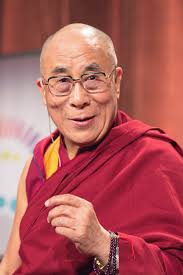The Legacy of the Dalai Lamas in Tibetan Culture

Introduction
The Dalai Lamas have long been pivotal figures in Tibetan Buddhism, embodying both spiritual and political leadership. As revered spiritual leaders, they are believed to be the reincarnations of Avalokiteshvara, the Bodhisattva of Compassion. The relevance of the Dalai Lamas extends beyond Tibet, influencing global spiritual discourse and promoting messages of peace and non-violence, especially in the context of ongoing socio-political struggles faced by Tibet.
The Lineage of the Dalai Lamas
Beginning with the 1st Dalai Lama, Gedun Drupa, who lived in the 15th century, the lineage has evolved through 14 successive incarnations, the most recent being the 14th Dalai Lama, Tenzin Gyatso, born in 1935. His Holiness has been a prominent advocate for humanitarian issues and cultural preservation since he was enthroned at the age of four. In 1959, following the Chinese invasion of Tibet, he fled to India, where he continues to reside and advocate for Tibetan independence.
The Dalai Lama Today
The current Dalai Lama continues to engage with global audiences, addressing vital issues like climate change, conflict resolution, and interfaith dialogue. His teachings promote compassion, mindfulness, and ethical living, providing a roadmap for addressing modern dilemmas. In a world increasingly fraught with division, his message of universal responsibility resonates profoundly across cultures.
Global Influence and Relevance
In addition to his spiritual teachings, the Dalai Lama has received several prestigious awards, including the Nobel Peace Prize in 1989. His perspectives on non-violence and dialogue have inspired leaders and activists worldwide, and his efforts to foster a deeper understanding of Tibetan culture highlight the importance of cultural diversity in global society. As the world grapples with issues of identity, belonging, and peace, the teachings of the Dalai Lamas serve as a guiding light.
Conclusion
The legacy of the Dalai Lamas is not just a central tenet of Tibetan culture, but a vital part of the global conversation on spirituality and human rights. As His Holiness continues to advocate for the rights of the Tibetan people while promoting messages of peace, the impact of the Dalai Lamas endures, reminding us of the power of compassion in fostering a better world. The future of the Dalai Lama’s influence rests on the preservation of Tibetan identity and the continued pursuit of dialogue and understanding in an increasingly complex world.









